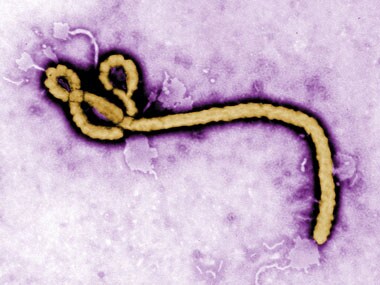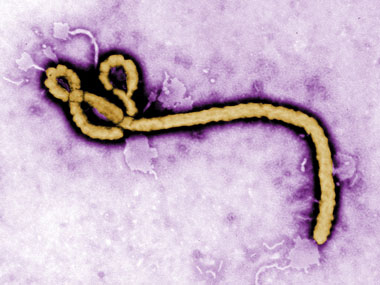New Yorkers have been in a state of panick ever since news reports appeared that city’s first Ebola patient — Dr Craig Spencer — went bowling in the Brooklyn neighbourhood on Wednesday evening. The doctor also took an Uber taxi and rode the subway. Much anger and shock was directed towards Spencer on social networking sites including Twitter where he was slammed for his ‘irresponsible’ behaviour, given the fact that he himself is a doctor. Craig was part of a team from the organisation Doctors Without Borders who were treating Ebola patients in Guinea. [caption id=“attachment_1771223” align=“alignleft” width=“380”]  Representational image.[/caption] However, New Yorkers need to calm down because there is no reason to panic. Spencer was constantly checking his temperature daily and said he had normal temperature on the day he went bowling. He added that he did not show any symptoms of the Ebola virus disease. The New York Times in a report says: “Although the surface of a shared bowling ball is a likely place to find germs — and some people avoid bowling for this very reason — it is extremely unlikely that Ebola could be passed that way. There is no evidence that it has been passed, as colds or flu sometimes are, by touching surfaces that someone else touched after sneezing into their hand. Ebola is normally passed through contact with blood, vomit or diarrhea.” There are other reports that only confirm The New York Times report. And hence it is highly unlikely that anyone would have contracted the virus from the things that Spencer came in contact with on that very day. And no, people who were in the subway with Spencer or took the same taxi as him are also unlikely to get the disease. A report in the Time explains why: “The virus only survives inside bodily fluid of an infected person—meaning their blood, sweat, vomit or feces—that then comes into contact with an open sore or the mucus membranes of another person.” According to data, the report in the Time noted, the virus can only survive on surfaces if its inside a liquid. But only confirmed case was a decade ago of a patient in Gulu, Uganda, when the patient got the disease by sleeping with a blanket that had been used by another Ebola patient. Spencer told authorities that he felt fatigue on Wednesday but on Thursday had a 103 degree fever and diarrohea. It makes it even more unlikely for the disease to have spread. The New York Times reports “the Ebola virus does not not normally build up to high levels in saliva or mucus until very late in the disease — several days after the initial fever sets in — and it is unlikely that someone that ill would have just gone bowling. Also, the Ebola virus is fragile and susceptible to drying out. It does not normally survive for more than a few hours on a hard, dry surface.” So calm down New York and cut him some slack. He has not spread the virus across the city.
Cut Dr Craig Spencer some slack. Studies and researchers say that in all likelyhood he did not spread any Ebola virus when he was out and about in town.
Advertisement
End of Article


)

)
)
)
)
)
)
)
)



